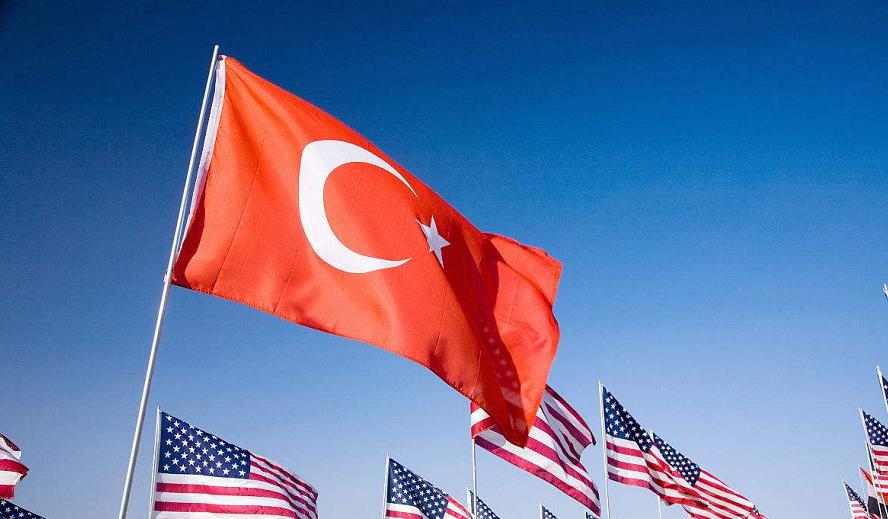In recent times, there has been a serious diplomatic crisis between Turkey and Western countries. As the ambassadors of the 10 Western countries, led by the United States, called on Turkey to release businessman Osman Kavala, Turkish President Recep Tayyip Erdogan immediately fought back, declaring the ambassadors of the United States and 10 other countries undesirable and threatening to expel them. However, Erdogan's attitude has changed because the United States and other countries have made it clear that they will not interfere in Turkey's internal affairs again.

Some time ago, the ambassadors of 10 countries, including the United States, Germany, Canada, Denmark, Finland, France, the Netherlands, New Zealand, Norway and Sweden, issued a statement calling on the Turkish authorities to release the philanthropist and businessman Osman Kavala, which completely angered Erdogan. Kavala, who financed the 2013 Turkish congressional protests and participated in an attempted coup in 2016, was arrested in 2017 and has been detained for four years now.
In Turkey, the Kavala case was banned from discussion, but the 10 ambassadors of the United States and Europe issued a statement calling for Kavala's release, and Erdogan was furious and listed the 10 ambassadors as undesirable, and the next step would be to expel them. Faced with a hardline Turkey, the United States had to compromise. On October 25, local time, the U.S. Embassy in Turkey issued a statement saying that the United States respects article 41 of the Vienna Convention on Diplomatic Relations and has an obligation not to interfere in a country's internal affairs.
It is reported that the United States delegation, Ibrahim Kalin, adviser and spokesman to the President of Turkey, and Foreign Minister Mevlut Chavushoglu led the negotiations to ease tensions, which emphasized the principles of the Vienna Convention. In a sense, the United States took the initiative to admit its mistake to Turkey, not only negating the previous practice, but also saying that it would no longer interfere in Turkey's internal affairs. After the U.S. Embassy issued the statement, it was forwarded by the embassies of Canada, Norway, Finland, the Netherlands and New Zealand, meaning they had agreed with the U.S. approach.
After confessing his mistake in the United States, Erdogan borrowed a donkey. According to the Russian Satellite News Agency, Erdogan welcomed the latest statement issued by the United States. Reuters reported on October 26 that Erdogan said in a televised speech after the cabinet meeting that the ambassadors of the relevant Western countries have taken a step back and believe that they will be more cautious in the future. Erdogan also said that Turkey's purpose is not to create a crisis, but to protect its country's rights, laws, honor and sovereignty.
In response to Erdogan's remarks, the Western media have interpreted it one after another, believing that Erdogan aims to ease tensions and has stopped calling for the expulsion of the ambassadors of the 10 Western countries. It was also reported that Erdogan had planned to hold a meeting on October 25 to confirm the expulsion of the ambassadors of the United States and other countries, but turkey immediately stopped the action after the United States confessed its mistake. With the United States taking the lead in making concessions, the diplomatic crisis was temporarily resolved.
From this point of view, when dealing with Western countries such as the United States, it is necessary to be tough when it is time to be tough. In fact, Turkey's toughness toward the United States has not been more than once. Previously, the United States had been warning Turkey not to buy Russia's S-400 air defense missile system, but Turkey was unmoved, and eventually was sanctioned by the United States and "kicked out" of the F-35 project. Later, Turkey said that if the United States did not sell the F-16, they would be ready to buy Russian Su-35 and Su-57 fighter jets, and the United States was forced to back down.
Of course, an important reason why Turkey dares to openly go against the will of the United States is Turkey's identity. Turkey is an important member of NATO and has allies with the United States, Germany, France and other countries. Once Turkey is completely provoked, NATO may be divided, then the power will be weakened, which is naturally what the United States does not want to see. It is worth mentioning that 7 of the 10 Western countries calling on Turkey to release Kavala are from NATO.